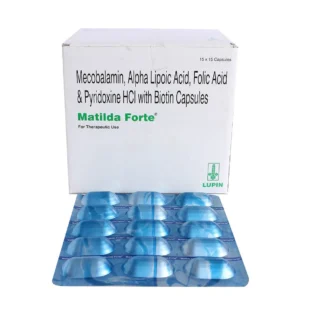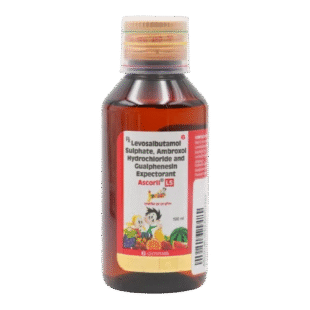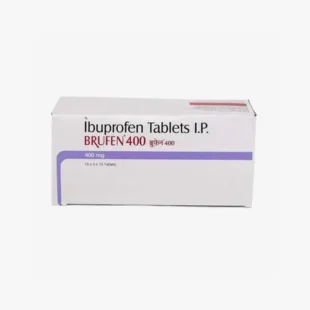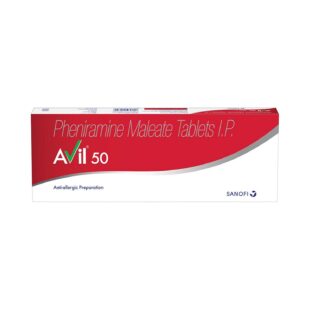- Your cart is empty
- Continue Shopping
Acuclav 300 Injection
Acuclav 300 Injection is a prescription antibiotic medicine used in the treatment of bacterial infections. It contains amoxicillin, a broad-spectrum penicillin antibiotic, combined with clavulanic acid, a beta-lactamase inhibitor that prevents bacterial resistance. This powerful combination makes the injection highly effective against a wide range of bacterial strains, including those resistant to standard antibiotics. Acuclav 300 Injection is commonly prescribed for infections of the respiratory tract, urinary tract, skin, bones, joints, and abdominal cavity. It is also used in the prevention of infections after surgical procedures. The injection is administered intravenously or intramuscularly by healthcare professionals under strict medical supervision. By providing fast and effective antibacterial action, it helps in reducing symptoms, preventing complications, and promoting quicker recovery. With its dual action, Acuclav 300 Injection ensures reliable infection control in hospital-based treatments.
Benefits
-
Provides broad-spectrum antibacterial activity
-
Effective combination of amoxicillin and clavulanic acid
-
Treats respiratory infections like pneumonia and bronchitis
-
Useful in urinary tract infection management
-
Helps in abdominal and intra-abdominal infections
-
Relieves skin and soft tissue infections
-
Treats bone and joint infections effectively
-
Provides protection against post-surgical infections
-
Useful in gynecological and pelvic infections
-
Active against resistant bacterial strains
-
Reduces fever and infection-related discomfort
-
Promotes faster healing and recovery
-
Suitable for moderate to severe infections
-
Ensures hospital-grade reliable treatment
-
Improves overall patient outcomes
Possible Side Effects
-
Pain, redness, or swelling at injection site
-
Nausea or vomiting
-
Loose stools or diarrhea
-
Stomach discomfort or cramps
-
Headache or dizziness
-
Skin rash or mild itching
-
Rare allergic reaction with swelling or difficulty breathing
-
Temporary rise in liver enzymes
-
Fever or chills in uncommon cases
-
Rare changes in blood counts
How to Use
-
Administered only by trained healthcare professionals
-
Given intravenously or intramuscularly under sterile conditions
-
Dosage depends on infection severity and patient’s health condition
-
Not meant for self-administration at home
-
Complete full course as prescribed by doctor
-
Inform doctor if any dose is missed in hospital setting
-
Treatment duration should be strictly followed
How it Works
-
Amoxicillin kills bacteria by breaking down their cell walls
-
Clavulanic acid blocks enzymes that cause antibiotic resistance
-
Combination provides stronger and wider antibacterial coverage
-
Ensures rapid infection control and reduces recurrence
-
Promotes faster recovery in resistant bacterial infections
What to Avoid
-
Avoid stopping treatment before completing the full course
-
Avoid self-injecting without medical guidance
-
Avoid alcohol consumption during therapy
-
Avoid using expired or damaged vials
-
Avoid mixing with incompatible solutions
-
Avoid taking other antibiotics without prescription
-
Avoid missing hospital doses
-
Avoid reusing opened vials later
-
Avoid using for viral or fungal infections
-
Avoid improper storage conditions
Safety Advice
-
Always take under hospital or clinic supervision
-
Inform doctor if allergic to penicillin or cephalosporin antibiotics
-
Pregnant women should use only if clearly prescribed
-
Breastfeeding mothers should consult doctor before use
-
Elderly patients may require dose adjustments
-
Children should receive pediatric-appropriate doses only
-
Monitor kidney and liver function in long-term therapy
-
Maintain adequate hydration unless restricted
-
Inform doctor about ongoing medications or allergies
-
Report unusual symptoms such as persistent diarrhea or rash
Precautions
-
Do not use if allergic to amoxicillin or clavulanic acid
-
Use with caution in patients with liver or kidney disorders
-
Report persistent diarrhea, which may suggest colitis
-
Monitor for secondary infections during prolonged use
-
Inform doctor before surgery or dental procedures
-
Complete full antibiotic course to avoid resistance
-
Injection solution should be freshly prepared before use
-
Blood counts may need monitoring in extended therapy
-
Keep medical history updated for proper dosing
-
Seek immediate help if severe allergic reaction occurs













Reviews
There are no reviews yet.